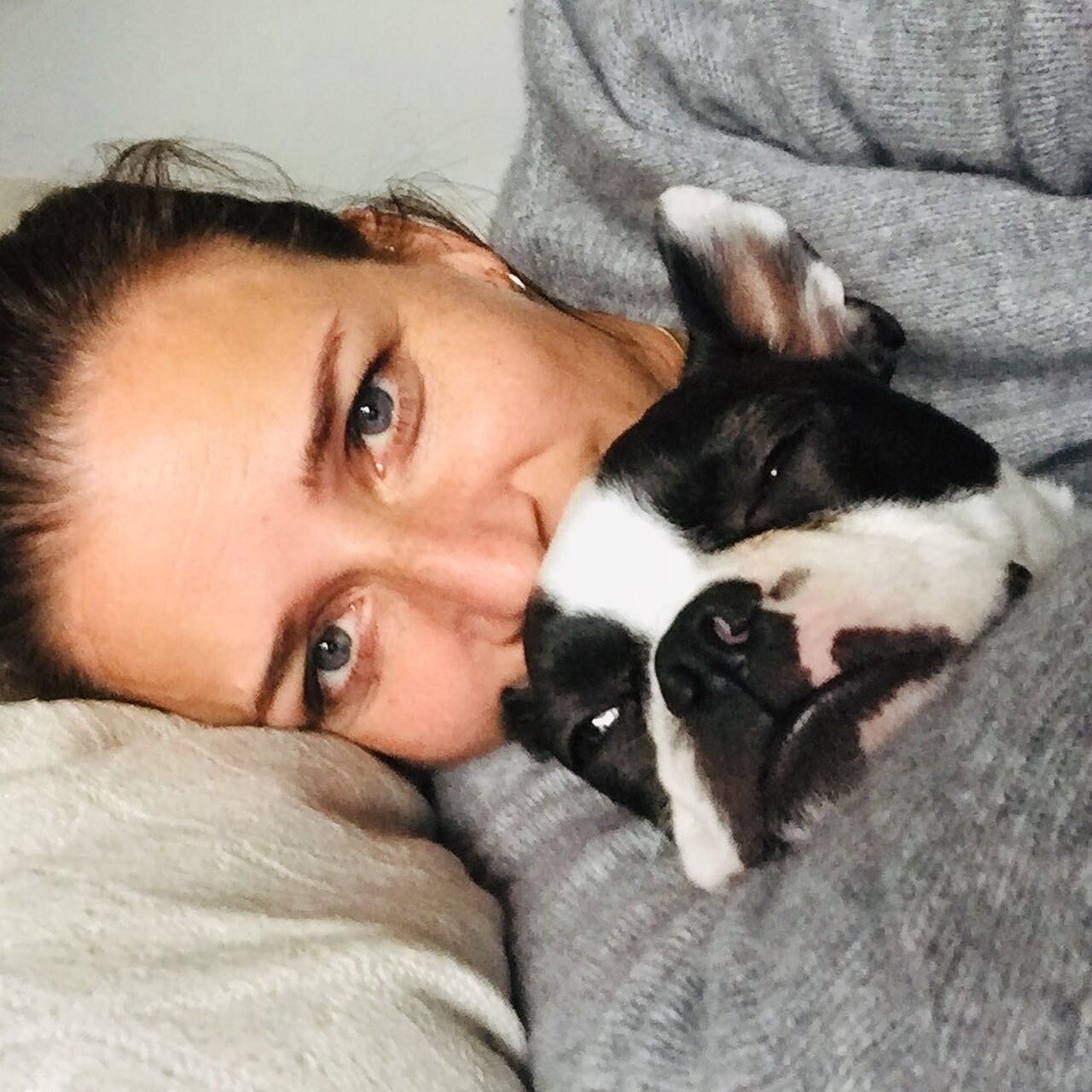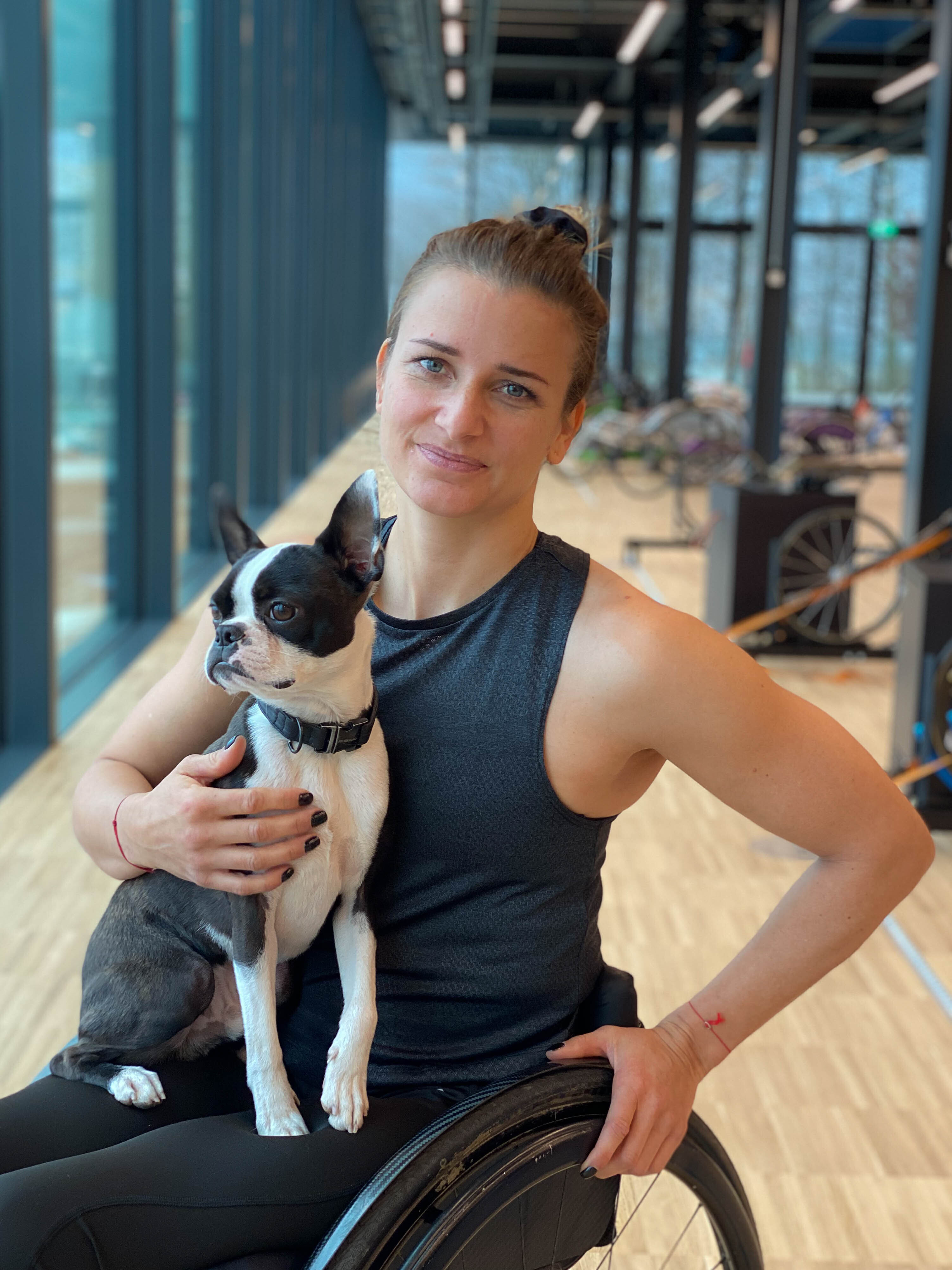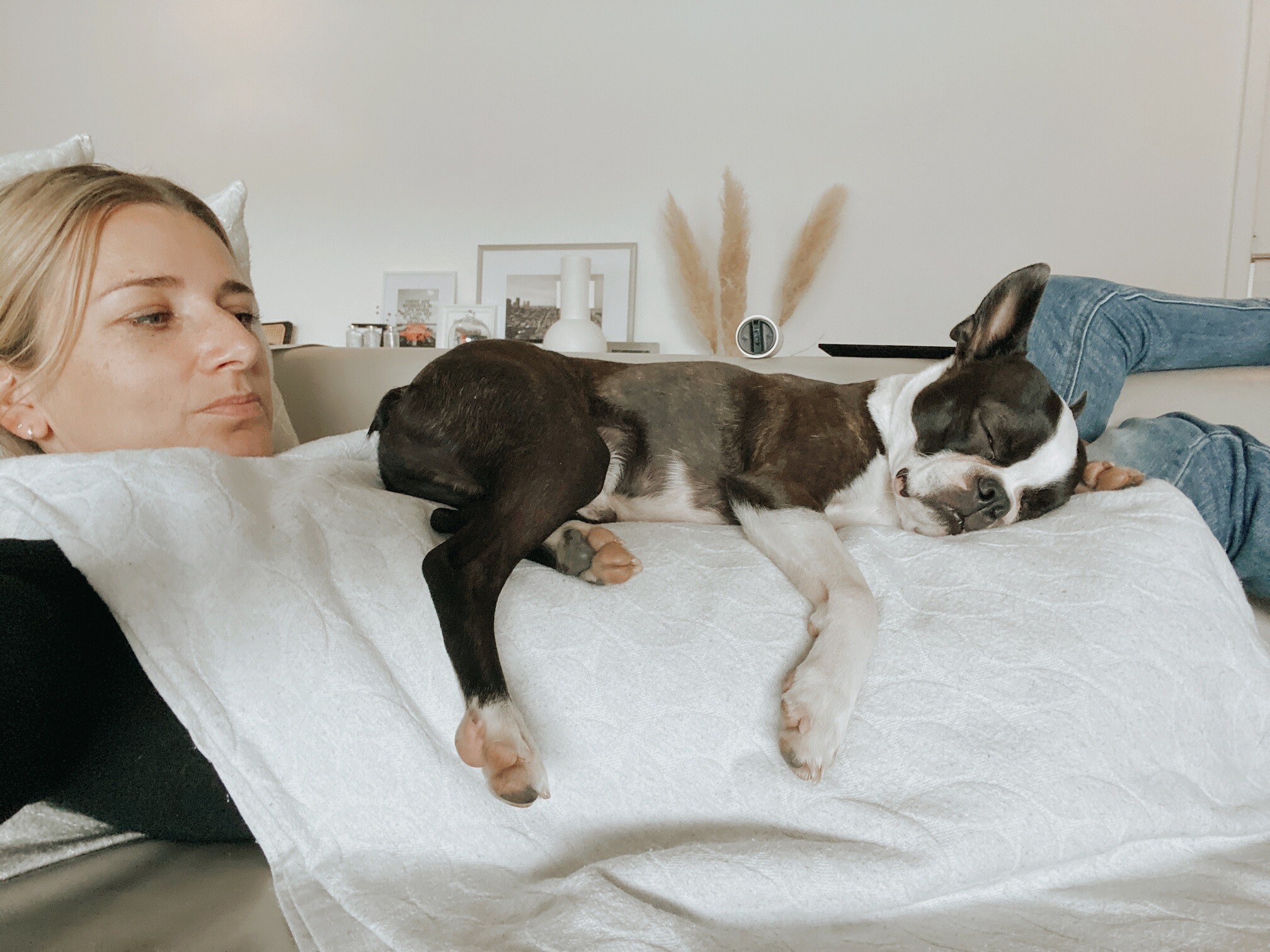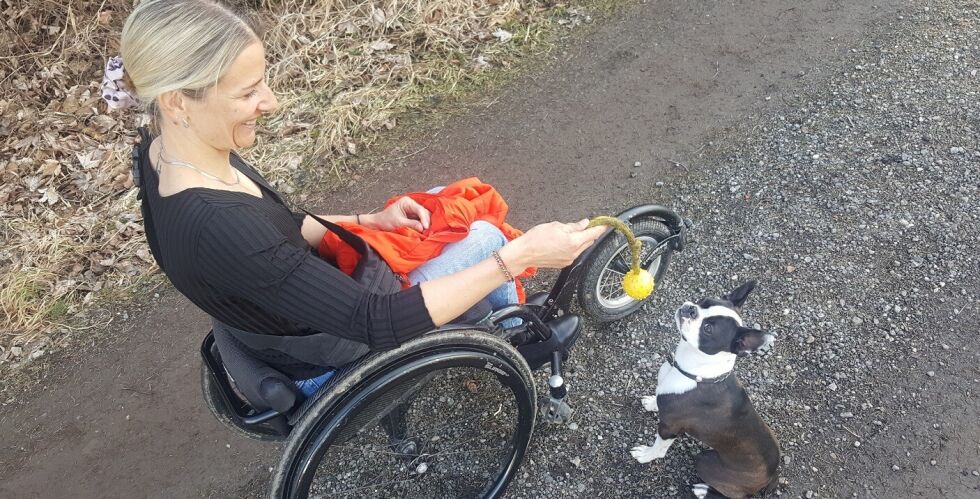For Manuela Schär sport has always been her highest priority. Then she made room for a dog in her life and became more successful than ever. A love story
- 4 minutes to read
- 07 March 2022
- Susanne Zuercher
For Manuela Schär sport has always been her highest priority. Then she made room for a dog in her life and became more successful than ever. A love story
Those of you who are even only a little bit interested in sport know Manuela Schär. In 2019 she won everything that you can win in the Marathon Majors Wheelchair Series: the Tokyo Marathon, Boston, London, Berlin, Chicago and finally the New York Marathon as well as the 800 meters world record.
“My coach Claudio Perret always says that I am so successful thanks to Lui”, says Manuela and laughs. The 37-year-old got the now 4-year-old Lui in 2018.
Growing up as a child with a Golden Retriever, being a professional athlete she did not consider getting a dog of her own for a long time. “At some point I felt that with all this training and focusing on performance and success my soft side was more and more neglected. That’s when I realized that I needed something for my heart!”

Complete satisfaction: Manuela and Lui snuggling. (Source: Manuela Schär/zVg)
Rebuffed when looking for a dog from the shelter
Manuela had done her due diligence and confirmed with her parents that they would take care of the dog while she would participate in races around the world. She checked platforms of animal shelters to find a suitable dog. She was looking for an athletic dog, not too big and good-natured. The shelters’ responses to her inquiries, however, were sobering: It was considered unrealistic that she, as wheelchair user, would be able to take care of a rescue dog. The animals were too unpredictable.
Consequently she began contacting breeders of Boston Terriers and subscribed to a waiting list. When eventually one breeder informed her about the expected litter, she used every free minute to drive to the Bernese Oberland to visit the litter and impress the breeder with her knowledge about breed and care.
“Actually, I had been looking for a female. Then this tiny puppy with the white-spotted ears put himself between the large wheel and the front wheel near the footrest of my wheelchair and fell asleep – and that was that – love at first sight!”
Lui helps her to regenerate
When Lui was ten weeks old he moved in with Manuela in Kriens. In the first weeks after his arrival she had lost several kilos. “I had hardly any time to eat and took him outside constantly when he needed to do his business.” The funny little guy kept her very busy. He is definitely the perfect dog for beginners, she finds. “I never have to put him on a leash, he always stays close by.”

Lui gives everything when going for a walk to get his favorite toy. (Source: Susanne Zürcher)
The athlete always takes Lui to the one to two training units per day in Nottwil on the racetrack or weight room. There the four-legged friend snoozes in his basket while his mom focusses on her training. In between her training units, however, she thoroughly enjoys spending the previously ‘unproductive time’ purposefully with her dog to regenerate. “When I go for a walk with Lui, I don’t use the phone or listen to podcasts but I am simply living in the moment.”

Between the training units Lui helps Manuela to regenerate. (Source: Manuela Schär/zVg)
A dog doesn’t make a difference
Picking up after her dog when going for walks of taking him outside, is it not sometimes difficult for her as a wheelchair user? Manuela thinks. Not really, she says. Very few times she would have put herself in a dangerous situation if she had tried to pick up after her dog due to uneven terrain but otherwise it has never been a problem.
What Manuela considers a challenge in her daily live, however, she describes with the expression ‘subtle ableism’ (ableism = devaluation or discrimination of persons with disabilities). She talks about a tour in the woods with Lui when two women with their dogs came the opposite way. According to an unwritten law, you leash your own dog when encountering other dogs and dog owners. Manuela accordingly called Lui and put him on the leash. Lui and herself had already passed the women when one of the two turned around and praised her for putting Lui on the leash. That a dog would listen to the commands of a wheelchair user may have surprised them, Manuela thinks. She is concerned about these kinds of devaluations disguised as compliments toward people with disabilities.
“When Lui came into my life I learned what total trust means. Because dogs are not prejudiced, for them you are their mom or dad, no matter whether you use a wheelchair or are a pedestrian!”

Lui and Manuela snuggling together on the couch. (Source: Manuela Schär/zVg)
Lui loves Manuela the way she is. Where do you experience unprejudiced affection?

